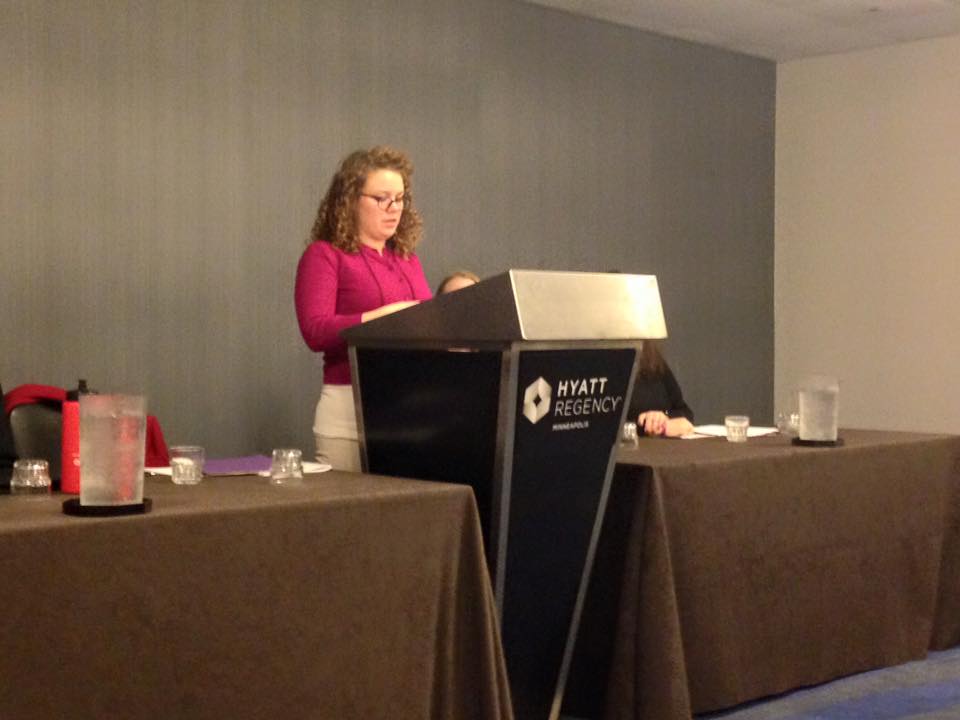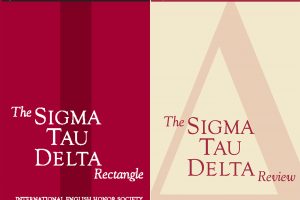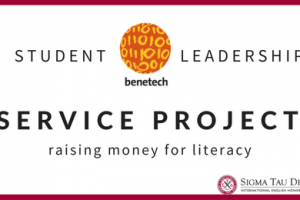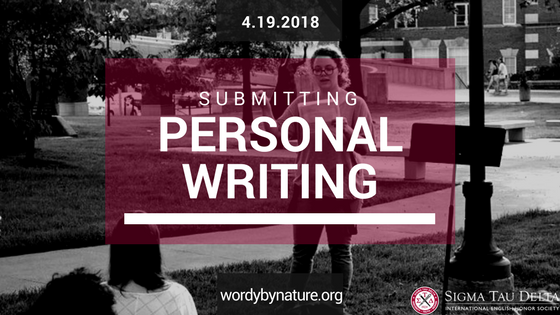 Last semester a professor of mine asked us to write a personal essay about a lie we’ve told or heard. I chose to write about the habitual secretiveness of my sexuality, my relationship history, and the veneer of denial that my family has kept up for over a year. I finished the essay in one sleepless, tearful night, tripling the required word count. I titled it “Not Another Gay Essay.” My professor wrote two words in red on the last page: EDIT. SUBMIT.
Last semester a professor of mine asked us to write a personal essay about a lie we’ve told or heard. I chose to write about the habitual secretiveness of my sexuality, my relationship history, and the veneer of denial that my family has kept up for over a year. I finished the essay in one sleepless, tearful night, tripling the required word count. I titled it “Not Another Gay Essay.” My professor wrote two words in red on the last page: EDIT. SUBMIT.

Writing about personal experiences is emotionally exhausting, scary, risky, and therapeutic. It also happens to be something I do every day. My poetry journal drips with irrational feelings, the kind of thoughts I must write down or else I’ll burst. This does not always produce the best writing. I’ve found when I workshop or present this work, readers and listeners rarely follow and understand. I tend to use comedy in my scripts to flip situations on their heads, but this requires some creative distance. My scripting professor argues that writers should take a decade before they try to write and present their trauma. When writing “Not Another Gay Essay,” the challenge of objectivity toward my current situation was the ultimate boss.
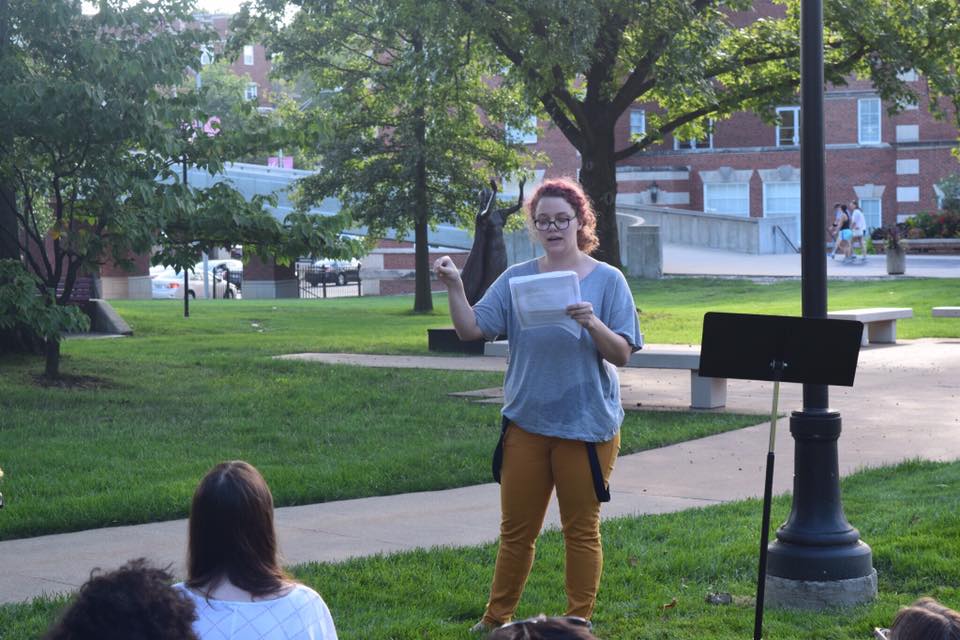 One of the hardest, scariest things about writing these things is the possibility of a reader misunderstanding, critiquing, or disliking it. Workshopping in class or to friends, submitting for publication or presentation, or even just turning an assignment in can be nerve-racking. Not only did I put all my energy into writing my “Not Another Gay Essay,” but I was turning in my biggest secret to a supercritical professor and was encouraged to show it to others. She later explained, “People love reading things like this.” I was afraid to show it to my partner and my peers for editing advice. I still haven’t decided if I can submit it to our chapter’s literary magazine, Harbinger, though having my poems about my parents published in the 2015 issue was extremely validating. Even as I write this blog, I’m aware of the vulnerable position I’m putting myself in by mentioning it.
One of the hardest, scariest things about writing these things is the possibility of a reader misunderstanding, critiquing, or disliking it. Workshopping in class or to friends, submitting for publication or presentation, or even just turning an assignment in can be nerve-racking. Not only did I put all my energy into writing my “Not Another Gay Essay,” but I was turning in my biggest secret to a supercritical professor and was encouraged to show it to others. She later explained, “People love reading things like this.” I was afraid to show it to my partner and my peers for editing advice. I still haven’t decided if I can submit it to our chapter’s literary magazine, Harbinger, though having my poems about my parents published in the 2015 issue was extremely validating. Even as I write this blog, I’m aware of the vulnerable position I’m putting myself in by mentioning it.
 So, does that mean we shouldn’t write about a subject until we’re absolutely over it? No! Writing helps me through many external and internal struggles, especially when I’m only writing for myself. I write letters I’ll never send to estranged and deceased loved ones. I jot down day dreams—future grocery lists, road trips, and pet names—when I feel like I can’t get through the day. I keep a pocket-size journal of unlined pages on me at all times for angsty impulses and jokes my friends won’t think are funny. Every now and then I am able to use these pieces to see a bigger picture, find irony, outline a story, or make a character more authentic.
So, does that mean we shouldn’t write about a subject until we’re absolutely over it? No! Writing helps me through many external and internal struggles, especially when I’m only writing for myself. I write letters I’ll never send to estranged and deceased loved ones. I jot down day dreams—future grocery lists, road trips, and pet names—when I feel like I can’t get through the day. I keep a pocket-size journal of unlined pages on me at all times for angsty impulses and jokes my friends won’t think are funny. Every now and then I am able to use these pieces to see a bigger picture, find irony, outline a story, or make a character more authentic.
I’m happy with the feedback I’ve received from that essay so far, and I’m glad I wrote it. I’ve since enrolled in a queer theory class and I even decided to develop my senior thesis on queer comedy. The process of writing my thoughts, finding theorists to supplement them, and organizing all of it so someone else could understand has helped me understand myself and grow.
So take a deep breath, sit down at your computer, and write that personal narrative! The prospect of baring your soul to potential criticism and rejection is daunting, but the process is cathartic and so worth it in the end. And once you’ve edited and revised, take that next step and submit your work to your school’s literary journal, or even to one of Sigma Tau Delta’s journals (due May 7). You never know, your personal narrative might be just the thing someone else needs to read.
 Haley Coburn
Haley Coburn
Student Representative, Midwestern Region, 2017-2018
Alpha Epsilon Eta Chapter, Secretary
Stephens College, Columbia, MO
Sigma Tau Delta Journals
The Sigma Tau Delta journals publish annually the best creative and critical writing of undergraduate and graduate active chapter members of the Sigma Tau Delta English Honor Society.
All active undergraduate and graduate members of active Sigma Tau Delta chapters are invited to submit their work to The Sigma Tau Delta Review and The Sigma Tau Delta Rectangle. Chapter Sponsors, faculty members, alumni (including members of the Alumni Epsilon Chapter), and honorary members are not eligible to submit.
Submissions for the 2019 journals are due between April 2 and May 7, 2018.


